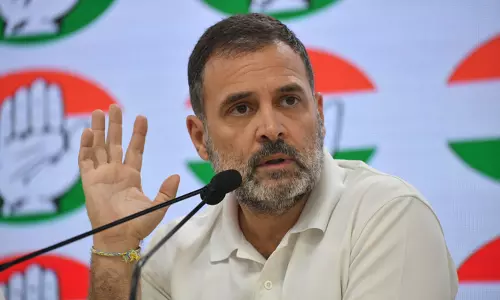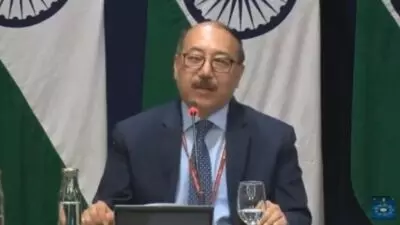
India calls for global action to avoid use of cyberspace for cross border terrorism
text_fieldsUnited Nations: Outlining the dangers to international peace emanating from cyberspace, India on Tuesday raised an alarm about the emergence of cyberspace as a vehicle for cross-border terrorism by nations and terror organisations and has called for international action to achieve a framework for global cybersecurity.
Speaking at the United Nations Security Council (UNSC) on Tuesday, Foreign Secretary Harshvardhan Shringla said: "We need to adopt a collaborative rules-based approach in cyberspace and work towards ensuring its openness, stability and security."
UN's High Representative for Disarmament Affairs, Izumi Nakamitsu also warned of the risks from cyberattacks and said that situations could develop that "can encourage states to adopt offensive postures for the hostile use of these technologies".
"The borderless nature of cyberspace, and more importantly anonymity of actors involved, has challenged the traditionally accepted concepts of sovereignty, jurisdiction and privacy", she said.
India has always underlined the need for member states to address and tackle the implications of terrorist exploitation of the cyber domain.
Shringla also raised concerns about cyber tools that were being used to "compromise state security" through attacks on critical national infrastructure, including health and energy facilities and to "disrupt social harmony through radicalisation".
He warned of the dangers from malware that can "create potential flashpoints between states".
"It is in the interest of the international community to ensure that all actors abide by their international obligations and commitments and not indulge in practices that could have potentially disruptive effects on global supply chains and trade in ICT (Information Communication Technology) product," he said.
"The Open-Ended Working Group (OEWG) on developments in ICT (OEWG) should be leveraged to find further common ground and improve upon the already agreed cyber norms and rules," he added.
The OEWG, set up by the General Assembly in 2018, submitted its final report this March. Though it did not recommend specific rules or regulations for adoption, it outlined areas of consensus and suggested further consultations.
While committing India to "an open, secure, free, accessible and stable cyberspace environment", he pointed out that "open societies have been particularly vulnerable to cyber-attacks and disinformation campaigns".
Responding to this, US Permanent Representative Linda Thomas-Greenfield said that countries should act against cybercriminals operating in their territories.
"Let me be clear: when a state is notified of harmful activity emanating from its own territory, it must take reasonable steps to address it. Given the transnational nature of cyberspace, this cooperation is essential," she said.
Meanwhile, in view of the dangers of ICT equipment being compromised with spyware, India has banned the use of some Chinese-made products recently.
























